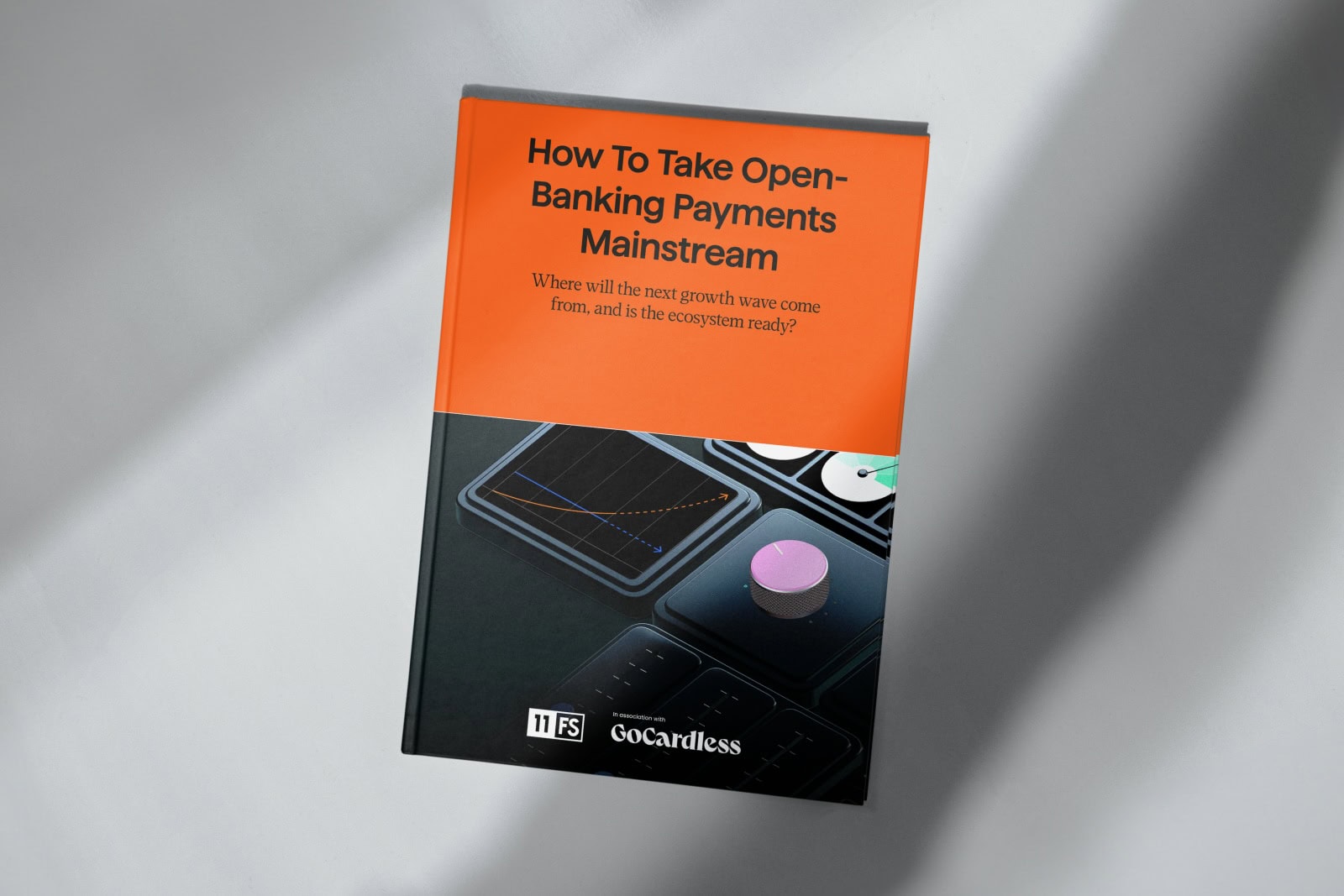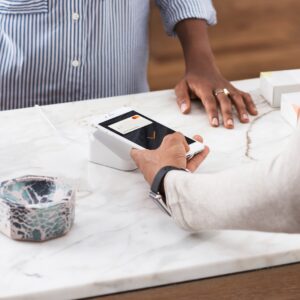Open Banking payments will go mainstream in the UK once the infrastructure has been “built out”, there is a full mandate for variable recurring payments (VRPs), a “common standard name” has been agreed upon, and all parties are incentivised to participate, according to GoCardless and 11:FS.
Pat Phelan, managing director, UK & Ireland and chief customer officer at GoCardless, and Benjamin Ensor, director of research and strategy at 11:FS, were speaking during a Fireside Chat at Open Banking Expo UK & Europe on 16 October (pictured), as they trailed a new joint report, ‘How to Take Open Banking Payments Mainstream’.
The survey, launched today (24 October) and conducted among 1,000 UK businesses, found that 23% say they are ‘very familiar’ with Open Banking.
Those who are currently using it or have done so in the past have experienced a range of benefits, with 48% citing ‘faster payments’ as the biggest advantage, followed by better visibility into payments and reduced payment fraud.
Speaking at Open Banking Expo UK & Europe, Ensor said: “All of us adopt technology when technology enables us to do something cheaper, faster, better than before. In terms of better, when it comes to payments it’s not only cost, but control, speed, security, simplicity and trust.
“To understand which use cases people have really embraced Open Banking payments in, you need to think about what are the existing alternatives and then think about, how is an Open Banking payment better? If all my details are pre-filled, you’re already taking steps out of the process, [and] you’re already making it easier for me as a consumer. Similarly, you may be taking out steps and costs for the merchants.”
 Ensor added that where Open Banking payments have been adopted at pace is in high-value remote transactions, where “Open Banking gives you confidence you’re paying the right person”.
Ensor added that where Open Banking payments have been adopted at pace is in high-value remote transactions, where “Open Banking gives you confidence you’re paying the right person”.
The survey indicated that adoption is highest in sectors such as credit and lending, and software companies, where there are more recurring online payments.
The report also predicts that construction, consumer goods and media will be among the next verticals to adopt, with education, professional services, utilities and others following on.
Retailers and hospitality, which are traditionally businesses with a higher proportion of in-person transactions, are not forecast to introduce Open Banking payments until at least 2027.
GoCardless’ Phelan told attendees at Open Banking Expo UK & Europe that while there are not “insurmountable” barriers to wider adoption of Open Banking payments, there are “elements that have hindered the growth of this area”.
He highlighted the technical and procedural infrastructure, and the work that is still to be done on customer experience.
“We know there are gaps in the process. We also know that from a consumer protection point of view there’s a lot to be … built out,” he said.
According to Phelan, one aspect that has hindered adoption is the “evolution of the ecosystem itself”.
“So, the commercial model needs to incentivise all parties… to be fully invested in what this is going to look like – from banks, to third-party payment providers, to regulatory bodies,” Phelan added.
“But, also, from a brand point of view. Where most of my time is spent is, the proposition comparable to cards. If you think about the Mastercards and the Visas and the brand equity that exists there, it’s pretty compelling.”
Ensor also called for a “common, standard name” and a logo.
“One of the problems with Open Banking payments today is, you do one Open Banking payment and the next time you come to it, it’s a different experience with a different provider,” he told attendees.
In addition to the survey findings, the report includes interviews with payment experts and a range of organisations, including those from financial services, utilities, telecommunications and charities.
In a statement, Paul Stoddart, president at GoCardless, said: “After a slow start we are seeing increasing demand from our customers as well as other businesses in the value chain investing in ‘Open Banking readiness’.
“This is exciting because Open Banking has the potential to fundamentally transform how we pay and get paid. But there’s a way to go before we hit mass adoption and blockers still remain.”
He added: “We hope this report will contribute to a rich debate about the future of Open Banking in the UK and help to take it mainstream.”
To download the full report, visit https://gocardless.com/how-to-take-open-banking-payments-mainstream/










